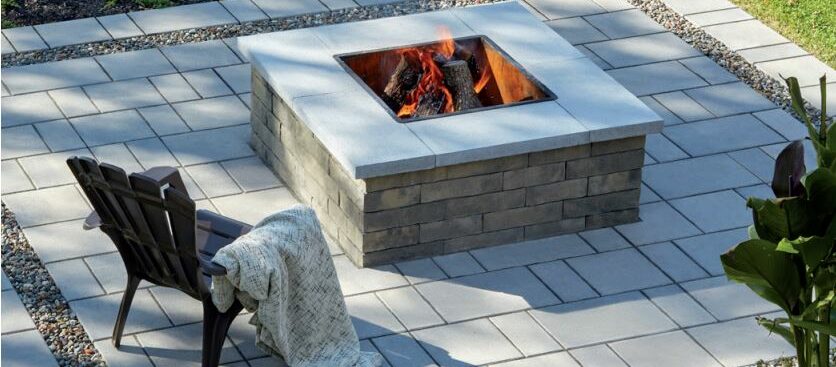Patio Cleaning in Action!
Patio Cleaning & Maintenance
VIATecho -Bloc
GENERAL CARE
The general care of your hardscape products is minimal, but important. Certain environmental circumstances may involve some additional care, but being consistent with the upkeep avoids more work in the future. Note that concrete is porous. When leaves fall onto your pavers, sweep them off to avoid organic stains. When you see dirt/clay on your pavement, take a minute to hose it off and keep it clean. Mild cleaning using various household products such as detergents, water and product-specific chemicals is sometimes necessary (like cleaning patio furniture, a vehicle’s chrome, plastic, or paint, etc.) to enhance their presence
and charm. Protectants of all types are available for additional resistance against acid rain, stains and nature’s worst.
Not a DIYer? Contact Us for a worry free experience. C.E. Pontz Sons specializes in the care of segmental concrete pavements and retaining walls.
CLEANING BASICS
HOW OFTEN
HOW OFTEN
Clean your paved area when you see that it is necessary. Again, sweep off leaves regularly to avoid staining. Hose down your
pavers to remove any dirt, clay, or debris that have stuck on. When the snow melts, a thorough, overall spring cleaning with
a light product shampoo or dishwashing soap works best to get your pavers ready to enjoy.
WHAT TO USE
Cleaners are sold for different purposes. For maximum results, be sure to use professional or properly diluted household
products. We recommend that you start with the mildest or least invasive cleaner and work your way toward a stronger one.
Sometimes two or three applications of a mild cleaner is all you need. If you choose to use an industry cleaner, be sure to read
and follow the labels carefully.
WHAT TO AVOID
Avoid wire brushes and strong acids like sulfuric and muriatic as this can do serious damage to a concrete paver. Acids should be
limited to professional use only.
ABOUT PRESSURE WASHERS
The improper use of a pressure washer may permanently etch the surface of your paving stones, steps or retaining walls.
Pressure washers should be used by professionals only for the
cleaning of your paved surface. The use of a syphon tip is highly recommended. Narrow tips may cause irreversible damage. Consider the use of cleaners and detergents in conjunction with a pressure washer to obtain the best results. Often, cleaning solutions are effective for stain removal and general care with very little water pressure required. Do note that a pressure washer should never be used on Wet Cast products.
DON’T FORGET ABOUT THE JOINTS
The joint or space between paving stones are the most vulnerable area, especially after a new installation. The two most common issues in jointing material are organics and erosion. We recommend that paving stone joints be filled with polymeric sand, joining compounds, or a joint stabilizing protectant on traditional sand joint. Damp, shaded areas between stones are prone to moss and
weed growth. Moss in your joints? Try using 3 parts water to 1 part chlorine bleach to remove it. Apply the mixture with a watering can or siphon sprayer, scrub with a nylon brush and rinse. To minimize the problem, consider professional advice to correct the moisture that encourages the growth of moss. When using a garden hose to clean the joints of a paved area, direct the hose diagonally at the surface on a 30-degree angle. Never direct the hose parallel to the joints as the strength of the
water stream may be too harsh and may dislocate the joining material.

